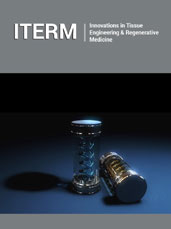- Submissions

Abstract
Innovation in Tissue Engineering & Regenerative Medicine
A Comprehensive Review on EGFR Targeted Therapies for Non-Small Cell Lung Cancer
-
Open or CloseParvatia Dipti1 and Tawil, Bill2*
1Department of Biotechnology, California State University Channel Islands (CSUCI), USA
2Department of Bioengineering, University of California, USA
*Corresponding author:Bill Tawil, Department of Bioengineering, UCLA School of Engineering, 420 Westwood Plaza, Room 5121, Engineering V. P.O. Box: 951600, Los Angeles, CA USA, University of Oklahoma Health Sciences Center, Oklahoma City, OK 73104, USA
Submission: June 06, 2025; Published: August 28, 2025

ISSN: 2578-0336Volume2 Issue2
Abstract
Non-Small Cell Lung Cancer (NSCLC) is the largest type of lung cancer, representing around 85% of lung cancer cases worldwide. NSCLC, with a five-year survival rate of only 25%, remains one of the leading causes of cancer-related mortality despite the advances in its early detection. The Epidermal Growth Factor Receptor (EGFR) signaling pathway is one of the central molecular pathways involved in NSCLC pathogenesis. Mutations in the EGFR gene lead to constitutive activation of EGFR, which promotes tumor growth and resists apoptosis, primarily in exon 19 and exon 21. This finding was the basis for a variety of EGFR-directed therapies, and has since transformed the landscape for treatment of NSCLC patients. Tyrosine Kinase Inhibitors (TKIs) specific to EGFR (such as gefitinib, erlotinib, afatinib, and osimertinib) have dramatically enhanced progression-free survival. However, the development of acquired resistance to first- and 2nd -generation EGFR-TKIs frequently occurs through secondary mutations, e.g., T790M. Such mutations have prompted the development of third-generation TKIs, including osimertinib, which provide patients with a more favorable outcome in the face of this resistance. To conclude, this review focuses on the molecular mechanism of EGFR role in NSCLC, history of EGFR-targeted therapies and treatment progress to overcome clinical resistance aimed at improving overall survival in NSCLC patients. Additionally, it discusses the market growth of EGFR inhibitors, key pharmaceutical players, and the importance of precision medicine in shaping the future of lung cancer treatment.
Keywords:Non-Small Cell Lung Cancer (NSCLC); Epidermal Growth Factor Receptor (EGFR); Tyrosine Kinase Inhibitors (TKIs); EGFR mutations; Targeted therapy; Drug resistance; Precision medicine; Lung cancer treatment
Abbreviations:BAT: NSCLC: Non-Small Cell Lung Cancer; EGFR: Epidermal Growth Factor Receptor; TKIs: Tyrosine Kinase Inhibitors; OS: Overall Survival; PFS: Progression-Free Survival; EGFR-TKIs: Epidermal Growth Factor Receptor Tyrosine Kinase Inhibitors; T790M: Threonine-to-Methionine Mutation at Codon 790; FDA: Food and Drug Administration; CNS: Central Nervous System; PD: Disease Progression; TKI-R: Tyrosine Kinase Inhibitor Resistance; ALKi: Anaplastic Lymphoma Kinase Inhibitor
 a Creative Commons Attribution 4.0 International License. Based on a work at www.crimsonpublishers.com.
Best viewed in
a Creative Commons Attribution 4.0 International License. Based on a work at www.crimsonpublishers.com.
Best viewed in 







.jpg)






























 Editorial Board Registrations
Editorial Board Registrations Submit your Article
Submit your Article Refer a Friend
Refer a Friend Advertise With Us
Advertise With Us
.jpg)






.jpg)














.bmp)
.jpg)
.png)
.jpg)










.jpg)






.png)

.png)



.png)






